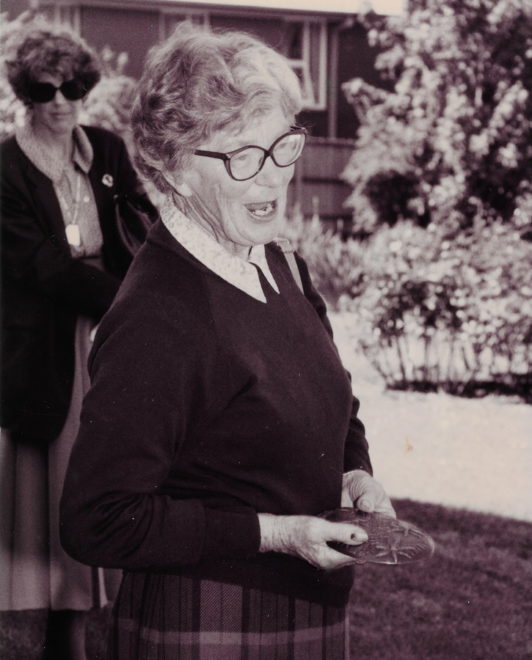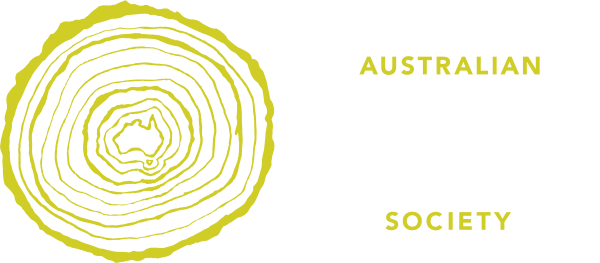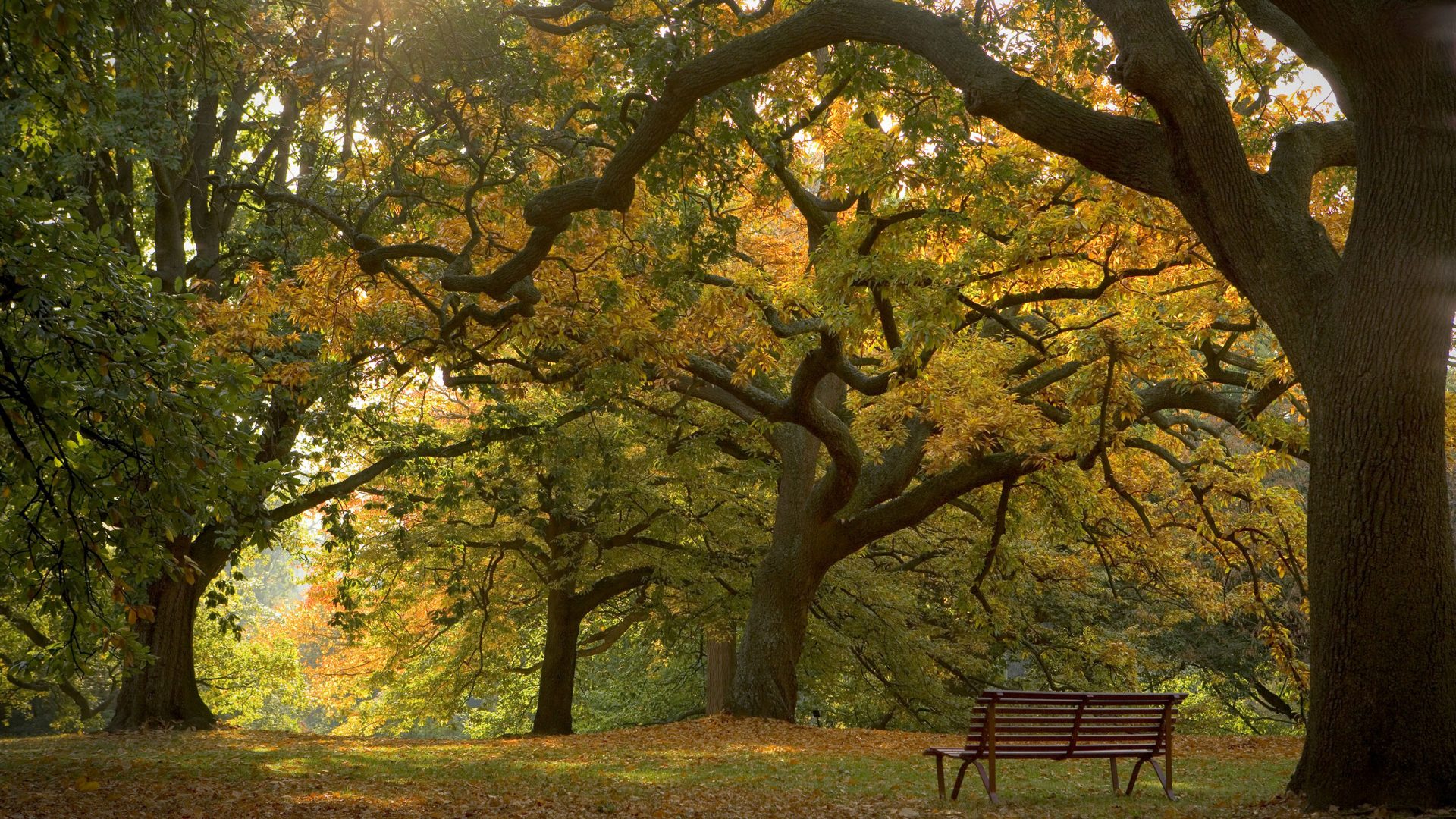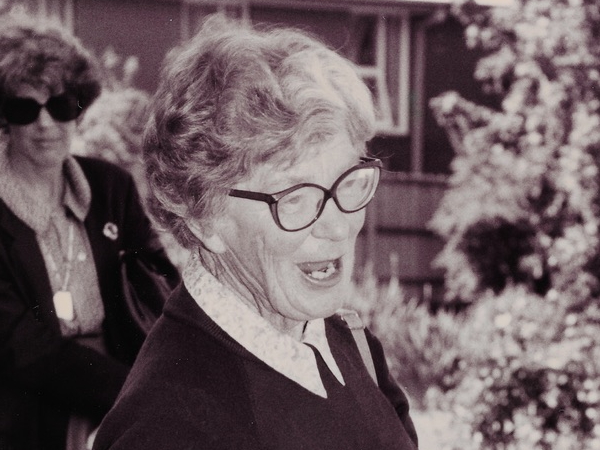Interview Recording
Interview Transcript
Fairie Nielsen interviewed in October 2004 by Sallyann Dakis
Synopsis
Fairie (Mary) Nielsen, who described herself as ‘just a farmer’, was asked to join the Tasmanian Australian Garden History Society branch committee in 1984 as a representative of the island’s North-West. She became branch president (chair) in 1987 and was that for a decade. To raise funds for a flailing Australian Garden History Society in 1991, she organised one of its most-fondly recalled tours, of Tasmanian gardens, which was clearly huge fun and wildly successful. In no small part due to this quiet, capable woman’s drive and character. She brought the same energy and vision to her marvellous garden, Pigeon Hill and nearby Emu Valley Rhododendron Garden, a public legacy.
I think it was, as I saw it, a completely new thing. And I think even the owners of these historical—of course the historical house and the historical garden sort of went together. Where you had a lovely old house, you generally had a lovely old garden too. I think it alerted members, or their friends perhaps, to what they had and how really valuable it could be. For themselves and for the history of Tasmania generally. I think it was a sort of wake-up call, the beginnings of that society and people went away thinking, “Yes, such-and-such, that would be an interesting garden, that’s an old place.” And I think for the owners it was the first little inkling that there might be some appreciation and some help perhaps … The Garden History brought in speakers and a lot of them, amongst our own members, were very talented landscapers or historians and things like that.
On joining the Society: No, I don’t know why we all joined. I think it was just something new, something different … to the usual little garden club that you belong to in your own home town. Wider scope. And the opportunity to hear some of these interesting speakers and hear what they’ve got to say. And to join in. And the conferences. You really do meet the most interesting people. Very skilled, very knowledgeable. Not only in gardening, but all sorts of other skills as well. The social side of it is very enlightening. Pleasant. You come home exhilarated and think, ‘I’d better get on with the weeding!’
On Australian Garden History Society tour-guiding in Tasmania: We went to Symmons Plains … she’s a great gardener and so hospitable. Beautiful garden, yes. … She rang up that night just as I was going to bed and said, ‘That was the nicest group of people that I’ve ever had here, Fairie, I’m just ringing to tell you.’ I was at school with her, she was a little girl and I was a big girl. And so I go on to the bus and I said, ‘Now Shirley Youl has just rung and she said you were the nicest group that she’s ever had. Now don’t let that go to your heads!’
On her own garden at Pigeon Hill: And when I came to live at Pigeon Hill I thought I’d have a garden, of course, and my husband said to me, “You can’t have any of this level land, you can only have the gullies, because anywhere I can take a tractor I need.” The fact that he was an engineer, not a farmer! And I had the gullies and I just spread my wings along the gullies willy-nilly and continued to do so. But like everything else, everything grows in Tasmania, especially on the North-West Coast. You don’t have to be very clever to have a good garden. The thing that really interests me most of all is landscaping and I don’t think we give enough time to—whether it’s the TV programs or whether it’s books, it’s how to grow plants, how to grow this and how to grow, but not good landscaping.
And the few times I’ve been asked to judge the Burnie Garden Competition, I get myself into all sorts of drama saying, “Well the flowers were good, the paths were neat, you know, everything was hunky-dory, but I thought the landscaping was absolutely ghastly.” And that’s only my opinion and who are you to judge … Yes, I think we’re not taught, whoever teaches us, and we don’t take on board the marriage of the house with the land. And it’s all very well for me to say that because I’ve got plenty of land and if it doesn’t suit me, I just move the fence. But when you’re in town and you’ve got neighbours, especially if they’re not gardeners, it’s very much more difficult. And I’ve got myself into all sorts of hot water by saying to people, you know, “Why are you making such a fuss about the cherry blossom on the lawn, I think it looks beautiful.” “Oh, it makes such a mess, it comes over from next door.”



